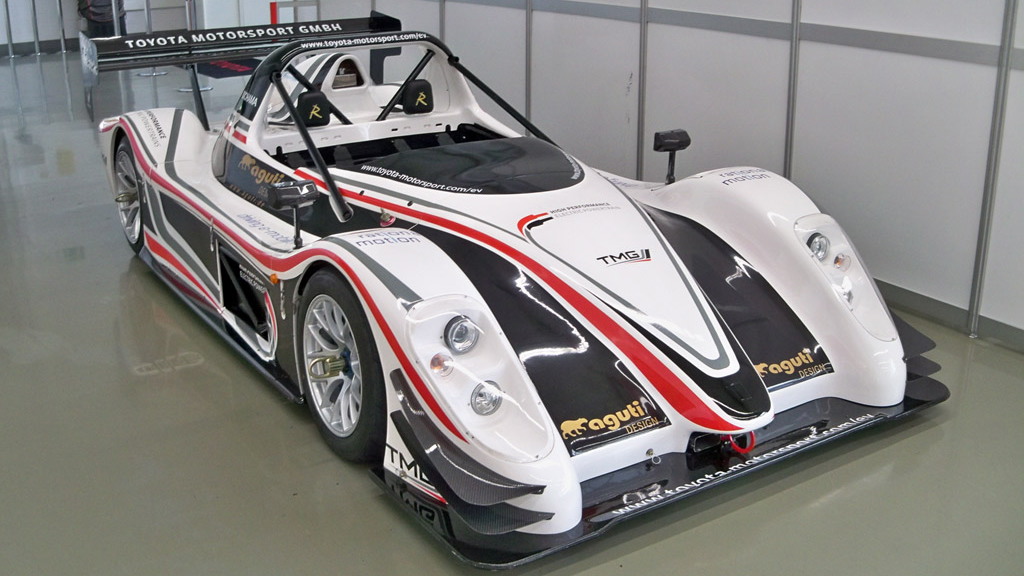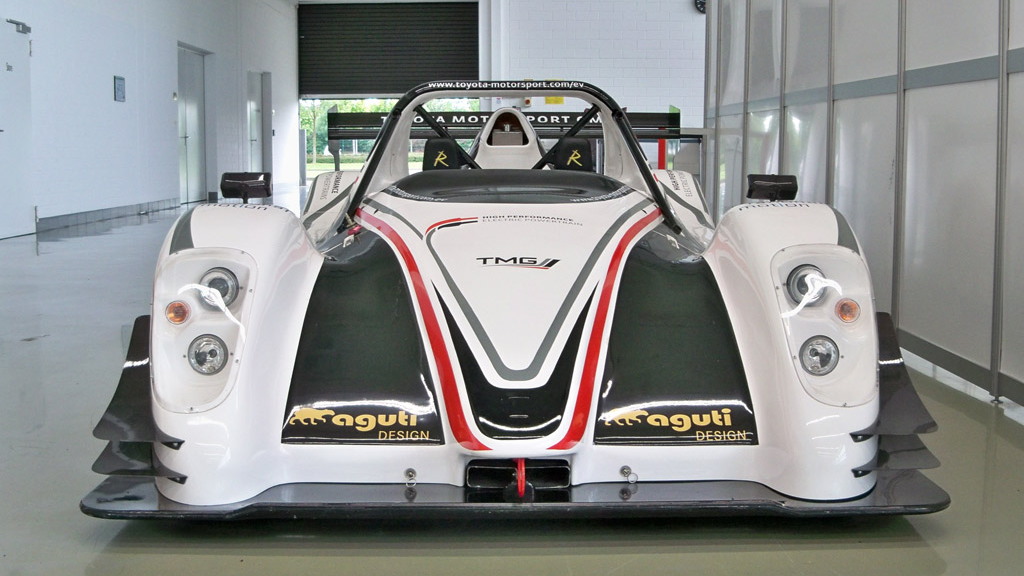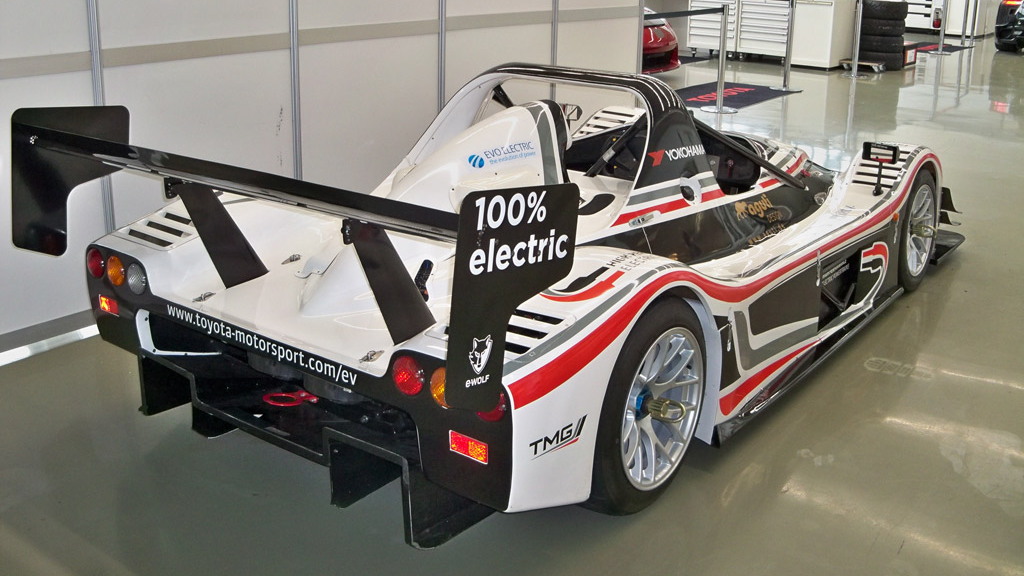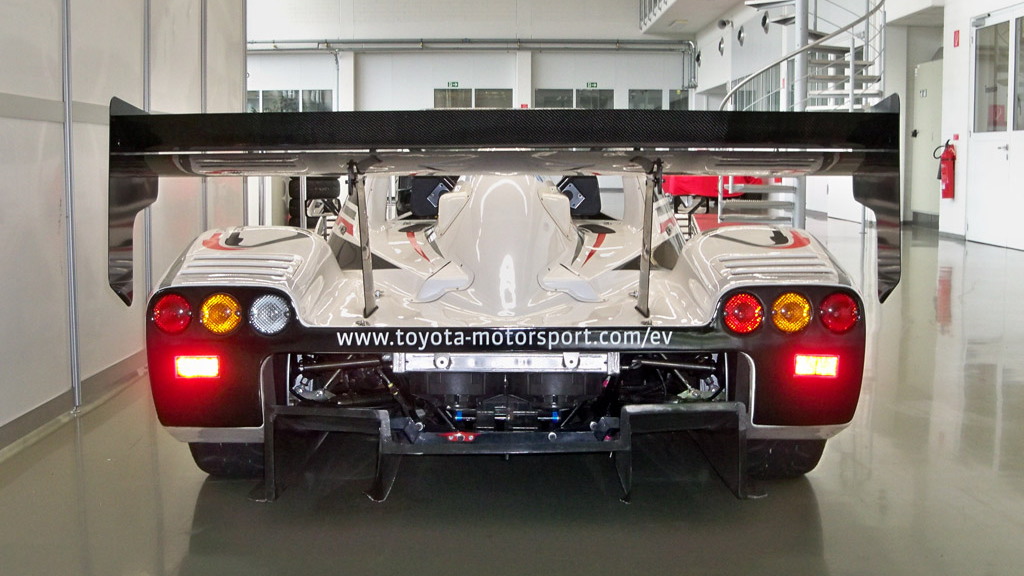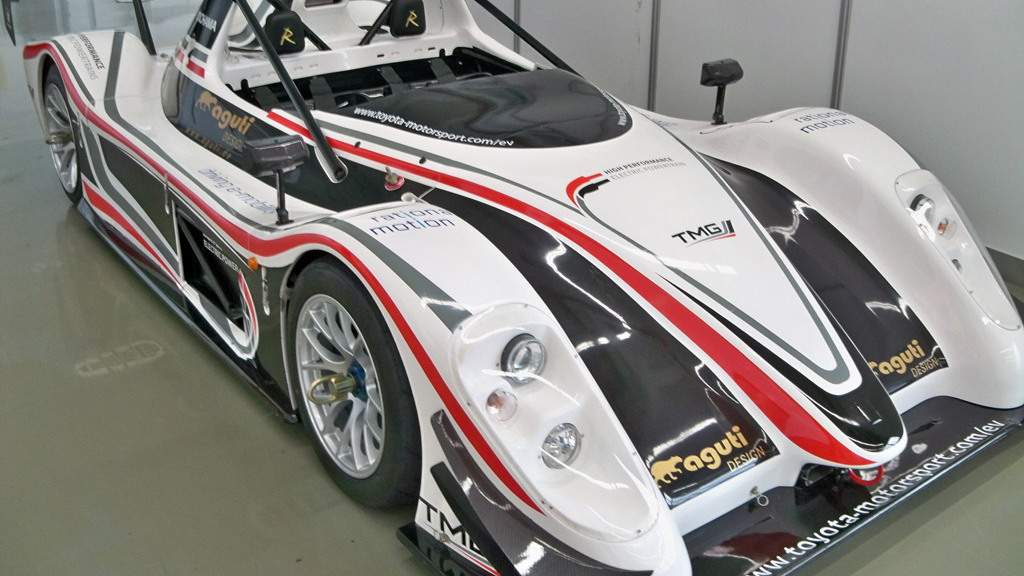The quick time around the 13-odd miles of the Green Hell was set by Toyota Motorsports GmbH (TMG) in its prototype electric race car you see here.
And to put this lap time into prospective, it is less than 30 seconds off the 'Ring times of cars like the Nissan GT-R, Chevrolet Corvette ZR1 and Dodge Viper ACR.
The key is TMG's expertise at building cars that can go around a track faster than almost anyone else. You see, TMG is an independently run organization within Toyota and was formerly responsible for building the automaker’s F1 race cars.

Wind tunnel at TMG facility in Cologne, Germany
As revealed by TMG’s communications officer Alastair Moffitt, much of the electric drivetrain powering Toyota's new prototype is based on knowledge gained in the development of the Kinectic Energy Recovery System (KERS) used in its original F1 cars.
“We have continued to expand in this area and the battery management systems and motor control units feature technology, which is derived directly from our F1 developments,” he said.
Drive comes from a pair of electric motors sourced from Evo Electric, rated at a combined 375 horsepower (280 kW) and 590 pound-feet of torque. They’re matched to a single speed gearbox and when fully worked will accelerate the 2,138 pound prototype from 0-60 mph in just 3.9 seconds and see it reach a top speed of 161 mph.
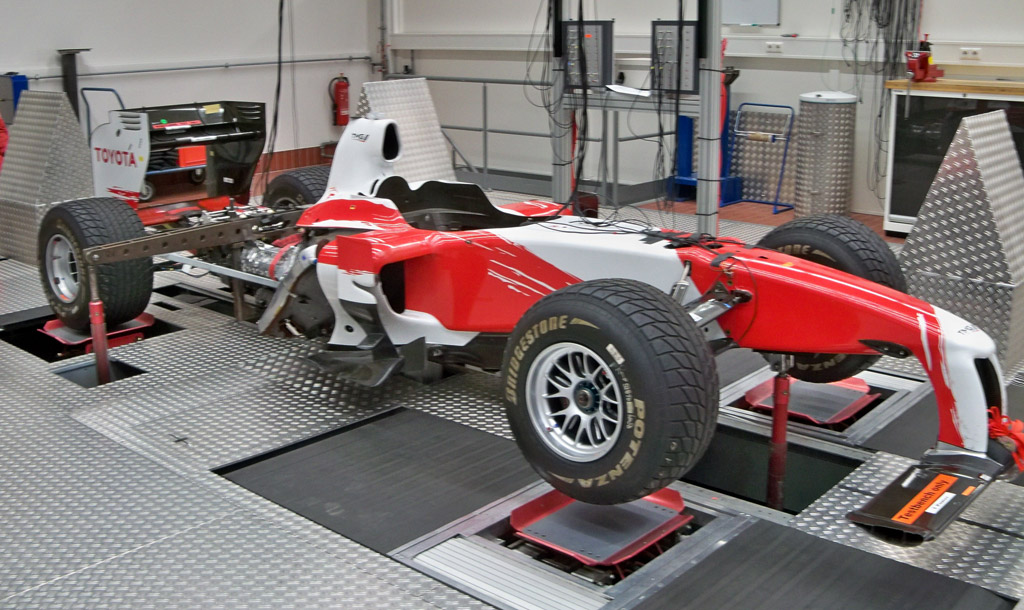
Toyota F1 knowledge used for electric race car prototype
They are rated at 520 volts and have a capacity of 41.5kWh. Their nominal output is 6 kW and they take about eight hours for a single charge.
In case you’re wondering why TMG was interested in setting an electric car lap record at the Nurburgring, it certainly wasn't just about bragging rights.
According to Moffitt, the project is a valuable chance to test high-performance electric powertrains in a real motorsport environment. Naturally, electric cars behave differently depending on the driving style and there is no tougher track than the Nordschleife, so engineers will learn a lot about cooling, battery performance, motor performance, durability, and so on.

Oven used to bake carbon fiber components
And remember, this is only the beginning of what may prove to be an electric car revolution, both in the mainstream and motorsports.
